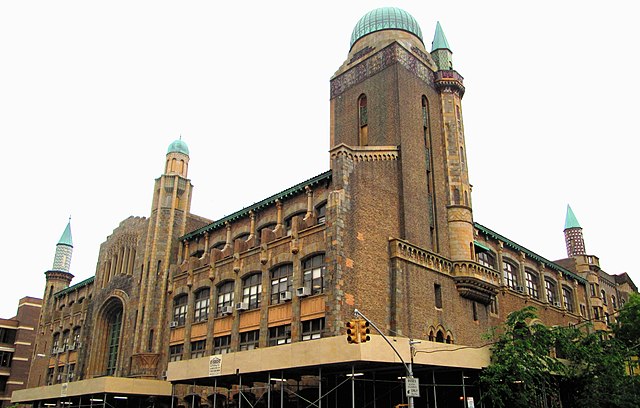IOIT: Yeshiva University suspends all club events after Supreme Court order; Black UVA students react to hate crime
September 28, 2022

Yeshiva University suspends club activities after Supreme Court allows creation of LGBTQ+ club
Yeshiva University (YU) in New York City froze all undergraduate club activities last week after the U.S. Supreme Court ordered the university to respect a lower court’s ruling that required it to recognize YU Pride Alliance, an LGBTQ+ student organization, as a valid club.
The Sept. 14 Supreme Court order is the latest development in a court battle that began in April 2021, when YU Pride Alliance sued the university for refusing to accept its club application. In response, YU, a private, Orthodox Jewish university, argued that being forced to recognize YU Pride Alliance would count as an endorsement of the group’s message, therefore violating the institution’s right to free speech.
The case revolved around the New York City Human Rights Law (NYCHRL), which prohibits discrimination on the basis of sexual orientation. YU claimed that it was a “religious corporation” rather than a secular educational institution, exempting it from NYCHRL.
In June 2022, the New York State Supreme Court ruled in favor of YU Pride Alliance and ordered the university to accept the club’s application to be recognized as a student group. YU then requested an emergency stay from the U.S. Supreme Court, which the court refused in a 5-4 vote, arguing that the case should move through New York’s court system first.
In response to the ruling, YU said in an unattributed Sept. 16 email to students that it would pause all club events.
“The university will hold off on all undergraduate club activities while it immediately takes steps to follow the roadmap provided by the U.S. Supreme Court to protect YU’s religious freedom,” the email stated.
On Sept. 21, YU Pride Alliance wrote in a statement, which was shared on Twitter by one of the plaintiffs in the case, that it would voluntarily agree to a stay on the New York court order — effectively holding off on obtaining club approval. “We are agreeing to this stay … because we do not want YU to punish our fellow [students] by ending all student activities while it circumvents its responsibilities,” the statement said.
“YU is attempting to hold all of its students hostage while it deploys manipulative legal tactics, all in an effort to avoid treating our club equally,” the statement continued.
Members of the YU community lamented the university’s reaction to the Supreme Court ruling, and over 1600 students, alums, and faculty signed an open letter calling for the university to recognize YU Pride Alliance. YU had “deployed our sacred Torah values in service of goals our Torah does not sanction,” the letter said.
Others, however, called for the university to keep with its decision to reject YU Pride Alliance’s application for the sake of maintaining religious independence. In an op-ed published in the Commentator, YU’s student newspaper, Rabbi Rafi Eis argued that YU should “revert back to its initial charter” as a religious institution rather than a secular school.
UVA reports hate crime, Black students demand action
Black students at the University of Virginia (UVA) published an open letter on Sept. 17 demanding that the university take action after a Sept. 8 campus-wide email reported an incident it classified as a hate crime.
At 4:20 a.m. on Sept. 8, UVA campus security discovered a noose hanging around the neck of a statue at the center of campus. The perpetrator — who was observed in security footage placing the noose on the statue at 11:15 p.m. on Sept. 7 — also left several unreleased documents at the scene. On Sept. 22, the university confirmed that one of the documents read, “TICK TOCK.”
The letter, which was attributed to “The Black Student Body” and published in The Cavalier Daily, criticized the university’s handling of the incident and demanded that UVA be more transparent with its investigation. During the two-week period following the incident, the university did not publish photos of the suspect and released minimal information regarding the documents found at the scene.
The open letter also called for a university-wide town hall, a “significant financial contribution” to address the emotional impact of campus racism on UVA’s Black students, and for “all University schools and departments [to] identify and address the demands of Black students within their specific institutions.”
“These demands warrant no committees. No task-forces. No bureaucracy. Only our voices met with action,” the letter stated.
The Sept. 8 hate crime is the latest at a university that has recently been grappling with its history of racism. In a 2018 report, UVA disclosed that the labor of constructing the university campus “was overwhelmingly done by enslaved people.” According to the report, many of UVA’s alums were “leading voices in the pro-slavery movement,” some of whom served as Confederate cabinet officers.
At the 2017 Unite the Right Rally in Charlottesville — which ended with a car attack that killed one and injured 35 — white supremacists marched across UVA’s campus and clashed with university counter-protesters. Two of the white supremacist leaders were UVA alums. The Chronicle of Higher Education later reported that UVA’s administration had misrepresented its prior knowledge of the rally in public documents that detailed its response to the demonstration.







